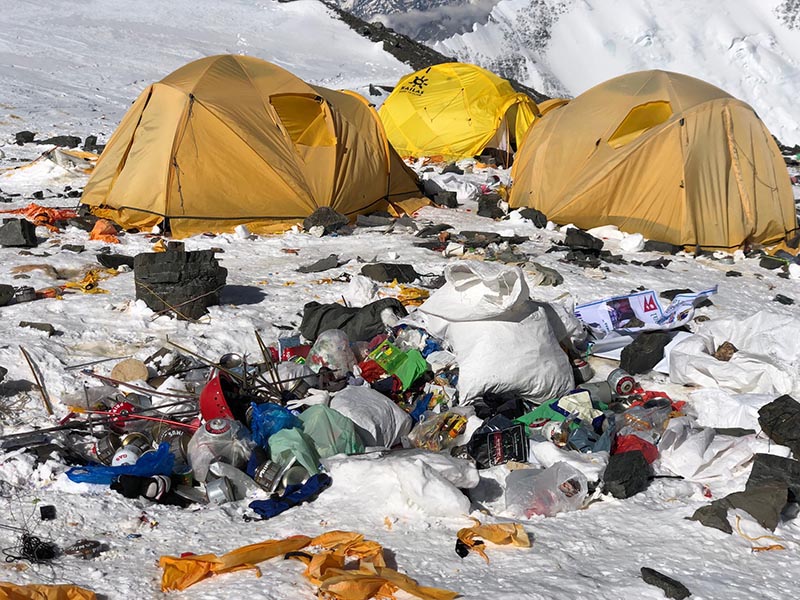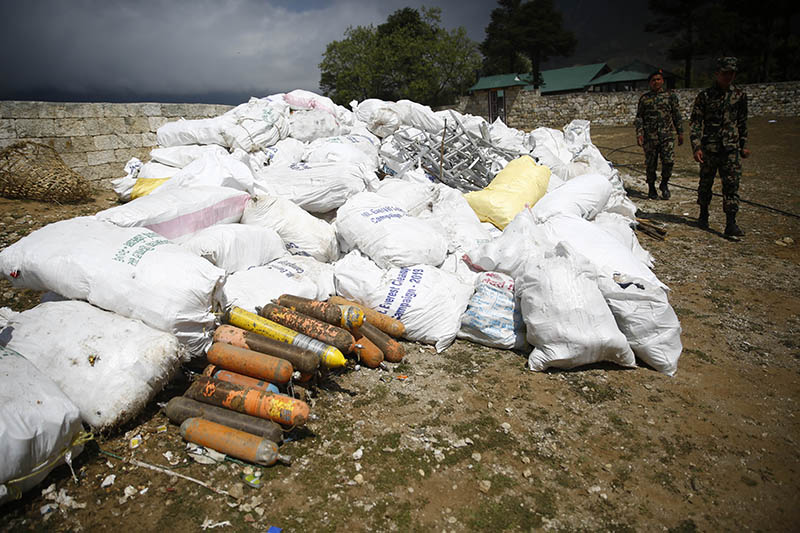Everest trash handed over for recycling
Kathmandu, June 5
Aluminium ladders and cans collected from Mount Everest may find a second life as pots and pans, Nepali officials said today, as some ten tonnes of garbage collected from the world’s highest mountain was handed over for recycling.
The 14-strong team sent by the government spent about six weeks scouring for litter from base camp to Camp 4 — nearly 8,000 metres up — scraping together empty cans, bottles, plastic and discarded climbing gear.
Global warming means melting glaciers are revealing rubbish which has gathered over decades of mountaineering by climbers who pay little attention to the ugly footprint they leave behind.
The bags of trash were flown by army helicopter to Kathmandu, or trucked down along winding mountain roads before being handed over to a local recycling company in a ceremony to mark World Environment Day.
“We collected (the trash) but managing it is also very important,” Dandu Raj Ghimire, chief of Nepal’s tourism department, told reporters.
The trash will be manually divided into different materials and then recycled accordingly.
“Usually there is a big volume of metal, aluminium, glass and heavy and light metal which can be easily recycled,” said Nabim Bikash Maharjan of Blue Waste to Value, adding that some would go to supplying a utensils factory in Kathmandu.

Fluorescent tents, discarded climbing equipment, empty gas canisters and even human excrement litter the well-trodden route to the summit of the 8,848-metre peak.
Governments on both sides of the mountain have been battling the human waste and trash left by an increasing number of climbers.
A clean-up team of sherpa climbers collected five tonnes of litter in April and May from different camps sites above the base camp and another six tonnes from the areas below, said DoT Director General Ghimire.
“Unfortunately, some garbage collected in bags at the South Col could not be brought down due to bad weather,” Ghimire said in a statement today.
Six years ago, Nepal implemented a $4,000 rubbish deposit per team that would be refunded if each climber brought down at least eight kilos of waste, but only half of the climbers return with their trash.
In February, China banned non-climbers from accessing its Everest base camp in Tibet in an attempt to clean up its side of the mountain.
Hundreds of climbers reached the summit this season, and the total could go past last year’s record of 807 ascents.






